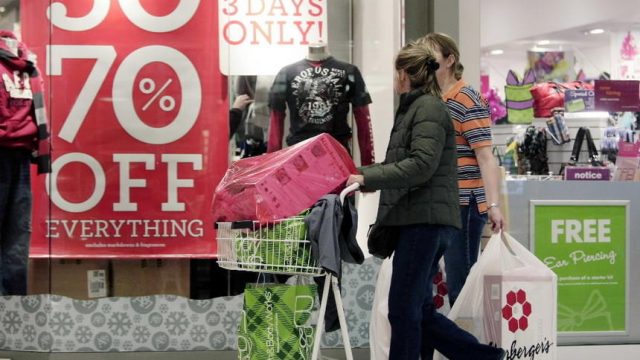“Buy Local” Campaigns Are About Resisting Unresistable Changes to Commerce

We’re entering the holiday shopping season, and as we do we’re going to hear a lot about shopping local.
Last week I wrote a print column decrying the “buy local” slogan. “The best sort of economy we can have is one guided by decisions made by people free to pursue the choices they feel are best for them,” I wrote. “So if you see a hot deal online, don’t let anyone make you feel guilty for availing yourself of it.”
In a letter to the editor over the weekend Minot business owner Val Stadick (she owns Main Street Books, a very excellent store) took exception to my column. She claims that proponents of the “buy local” message aren’t against free consumer choice, but she also claims that failing to “buy local” will result in our communities becoming economic wastelands.
I’m not buying that. The current model for local retail is in the process of being decimated by online retail, a trend which will only worsen as more internet-savvy generations come into economic power. But brick and mortar retail isn’t going to die.
It just needs to change.
The assumption of the “buy local” crowd is that, absent a shaming campaign guilting customers into shopping locally, that all commerce will go online. But that’s just not true, as this recent New York Times article indicates. What many brick-and-mortar retailers are finding is that customers don’t want retail that is exclusively online any more than they want retail that is exclusively brick-and-mortar.
An excerpt:
“There was a time six or seven years ago when there was only talk of pure play e-commerce,” said Stephanie Phair, the chief strategy officer of Farfetch, the marketplace and retail platform that helps brands do business online. “What we’ve seen from a millennial consumer behavior point of view is customers really want that joined-up online and offline experience.”
What that means is a renovation of the old bricks-and-mortar ideal. Instead of the arms race for the biggest location on the most desirable street, a new model focused on multifunctional, integrated stores is gaining currency: less storehouses of product than event spaces, classrooms, community centers, showrooms or studios.
I don’t think the “buy local” folks are really defending their communities. I think they’re defending old ways of doing things from the new and improved. They’re like horse and buggy manufacturers protesting the advent of the automobile.
“Buy local” campaigns are bunk. Consumers should buy in the manner that best suits their needs, and businesses should adapt.
It’s not our job to shape our lives around old ways of doing business.




